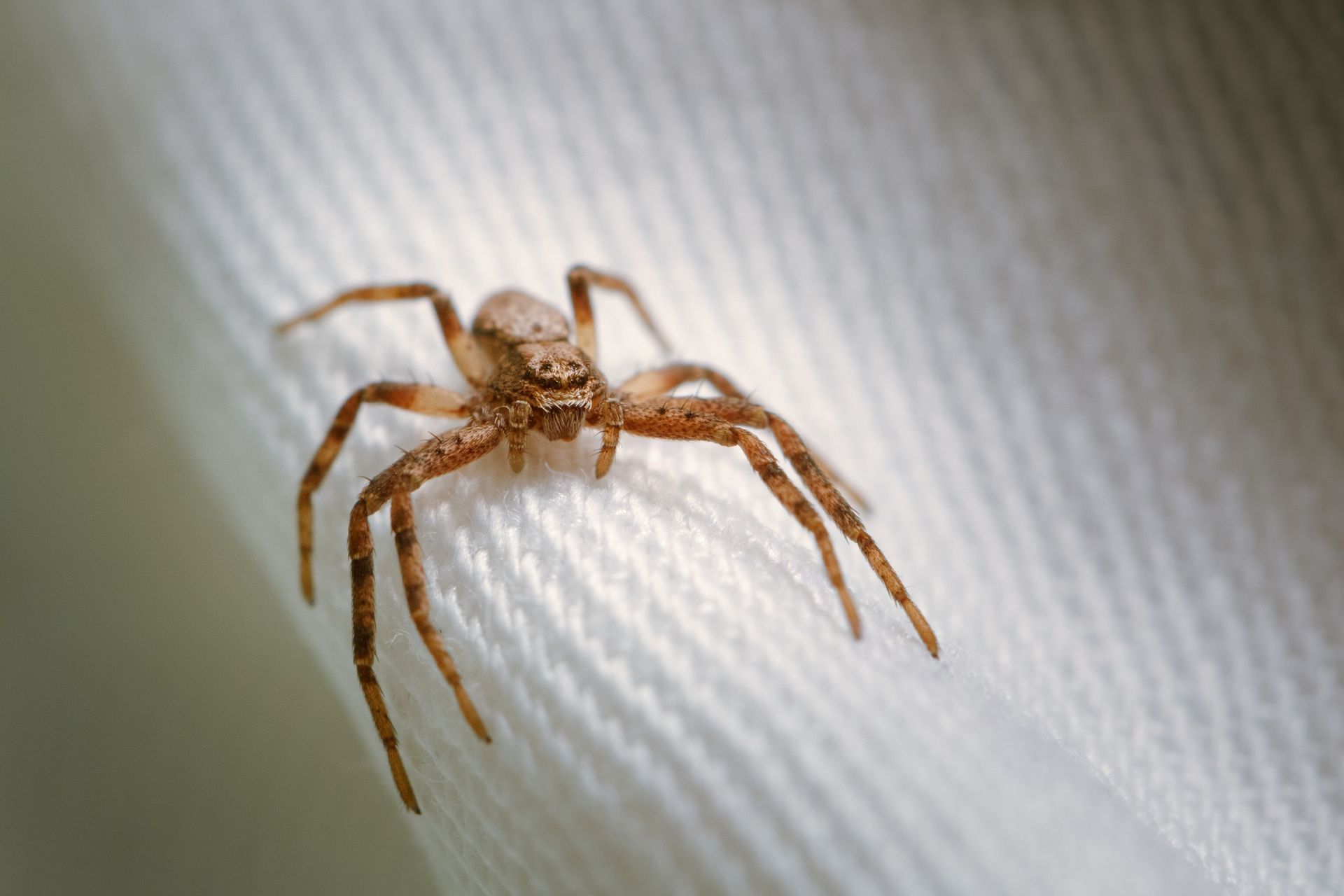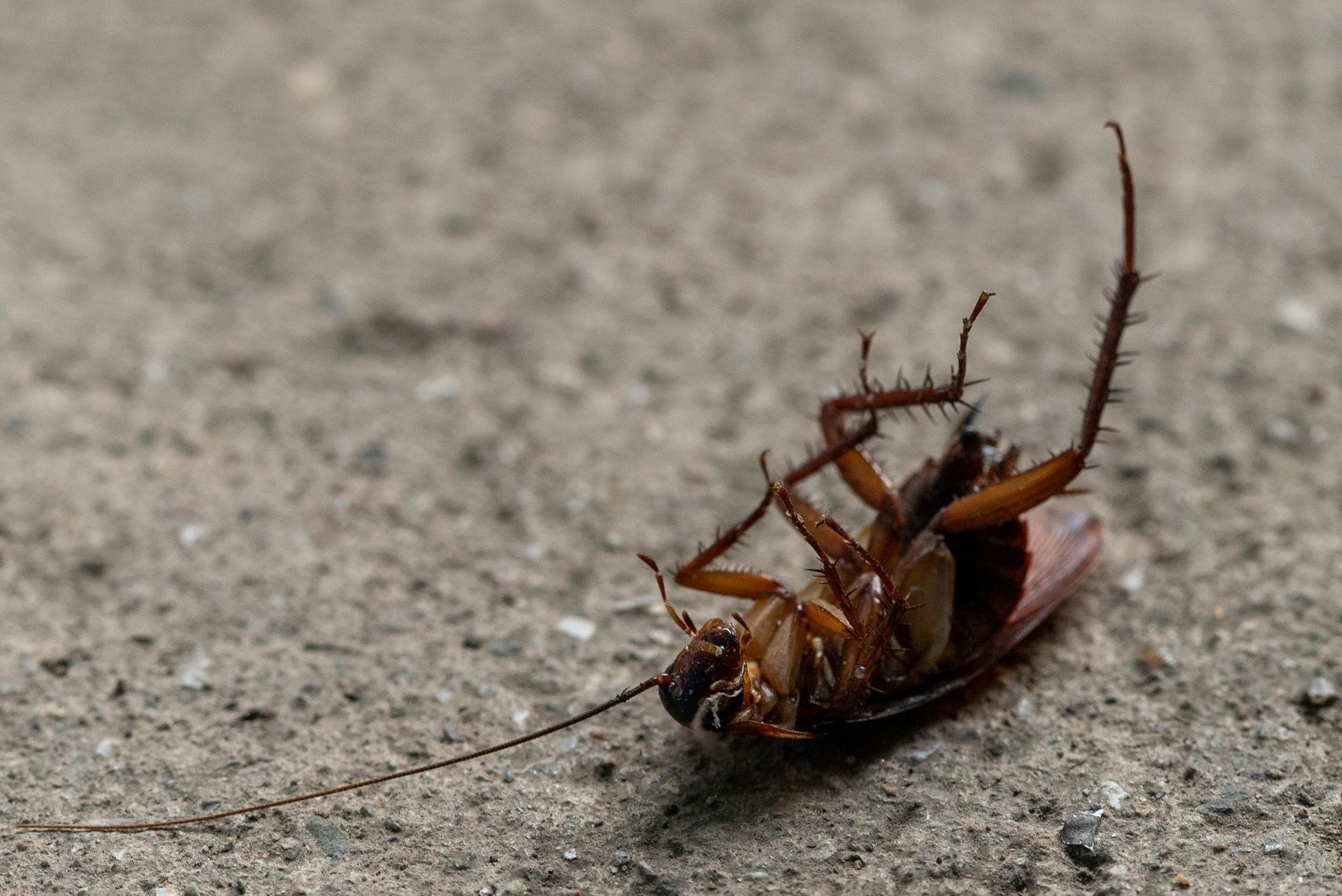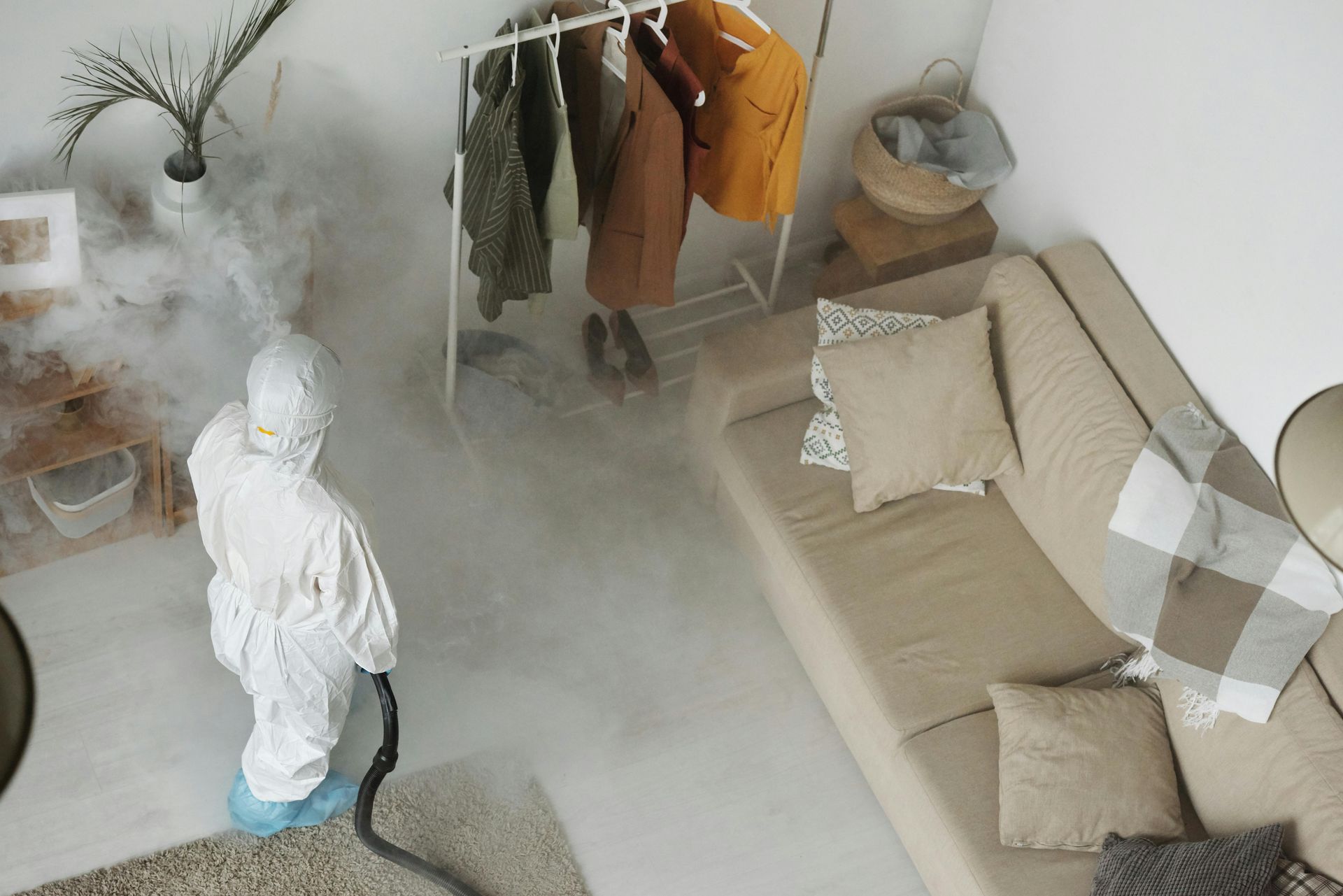Creepy Crawlers: Why Spiders Invade Your Home and How to Keep Them Out
Have you ever noticed an eight-legged visitor scuttling across your living room floor or dangling from the ceiling corner? Spiders are often unwelcome guests in our homes, causing alarm for many. But why do they come inside in the first place? Understanding spider behavior is key to keeping these creepy crawlers at bay. While spiders play an essential role in the ecosystem, their presence in our homes can be unsettling. In this post, we’ll delve into the reasons why spiders enter homes, what attracts them, and how you can protect your living space from these unwanted invaders. By gaining insight into spider behavior, you can take proactive measures to prevent them from becoming more than just a creepy annoyance. At
Eyring Pest, we're here to help you maintain a spider-free home. Call us at
385-290-9782 for expert assistance.
The Intriguing World of Spider Behavior
Spiders are fascinating creatures with unique behaviors that can seem puzzling to us. To understand why they enter homes, it's important to first grasp some basic facts about them. Spiders are predators, and they primarily feed on insects. This means they follow their prey, and if your home provides a steady food source, spiders will be naturally drawn to it. Their movements are often dictated by survival needs, such as finding food, seeking shelter, and reproducing. Seasonal changes also play a significant role in spider behavior. As temperatures drop, spiders may move indoors in search of warmth and a safe place to survive the colder months. Additionally, spiders have specific behaviors related to reproduction; some species lay eggs in sheltered, hidden areas, which your home may inadvertently provide.
Moreover, spiders are solitary creatures that prefer to stay hidden. They often avoid human contact, but when they do make an appearance, it's usually because they have been disturbed from their hiding spots. Understanding these behaviors can help demystify why spiders choose to invade your home. By recognizing their needs and tendencies, you can better address the factors that might be attracting them indoors.
Why Do Spiders Enter Your Home?
There are several reasons why spiders might choose to make your home their own. These arachnids are not entering your space out of malice; they are simply following their instincts. Understanding these factors can help you take steps to prevent future infestations.
- Seeking Shelter: Spiders, like many creatures, seek shelter when the weather changes. As temperatures drop in the fall, your home becomes an attractive refuge. The warmth, humidity, and myriad hiding spots in your home provide spiders with the perfect environment to wait out the colder months. This is especially true for spiders that are not native to harsh climates and need to find a stable, temperate environment to survive.
- Food Sources: One of the primary reasons spiders enter homes is the abundance of food. Spiders are carnivorous and primarily feed on other insects. If your home has an infestation of flies, ants, moths, or other small insects, spiders will be drawn in by the promise of a steady meal. They are opportunistic feeders, meaning that they will set up shop wherever food is readily available. Thus, a home with a significant insect population is likely to attract spiders, who will follow their prey into your living space.
- Mating Season: Spiders are more active during mating season, which typically occurs in late summer and early fall. During this time, male spiders become more mobile as they search for a mate. This increased activity can lead them into homes, especially if they sense the presence of a female spider inside. While they are not intentionally seeking out human habitats, the search for a mate can cause them to wander into unfamiliar territories, including your home.
- Light Attraction:
While spiders themselves are not attracted to light, the insects they prey on often are. Outdoor lights, especially those near entry points like doors and windows, can attract a variety of flying insects. These insects, in turn, attract spiders who come to feed on them. If you notice spiders frequently around your exterior lights, it's likely because they are following the insects that gather there. This is why reducing outdoor lighting or switching to less attractive lighting options can help minimize spider activity around your home.
Common Entry Points for Spiders
To keep spiders out, it’s crucial to know how they’re getting in. These resourceful creatures can squeeze through tiny gaps and cracks, so it’s essential to inspect your home for potential entry points. Here are some common entry points to be aware of:
- Windows and Doors: Spiders can easily slip through gaps in windows and doors. Older homes, in particular, may have worn seals or gaps that spiders can exploit. Even the smallest openings can provide access for spiders to enter your home. Ensuring that all seals are intact and adding weather stripping where necessary can be a simple yet effective way to block their entry. Regularly inspecting these areas, especially before the colder months, can help you catch potential entry points early.
- Vents and Air Ducts: Vents and ducts provide an easy access point for spiders. These areas are often overlooked when considering pest entry points, but they can be a significant vulnerability. Installing fine mesh screens over vents can help block spiders from entering through these pathways. Additionally, ensuring that vents are properly sealed and maintained can reduce the likelihood of spiders and other pests using them as entry points into your home.
- Cracks and Crevices: Spiders often enter through cracks in walls, foundations, and around plumbing or electrical fixtures. These small openings are perfect for spiders to slip through, especially in basements and crawl spaces. Sealing any gaps with caulk or appropriate materials is essential to keeping spiders out. Regularly inspecting your home’s exterior and interior for cracks and crevices, and sealing them promptly, can go a long way in preventing spider infestations.
- Attics and Basements:
Attics and basements are often neglected areas in the home, making them prime spots for spiders to enter and hide. These spaces are typically dark, quiet, and less frequently disturbed, providing ideal conditions for spiders to thrive. Regularly inspecting and cleaning these areas, as well as sealing any potential entry points, can help reduce spider activity in your home. Using dehumidifiers in damp basements can also make these areas less hospitable to spiders.
How to Prevent Spiders from Entering Your Home
Keeping spiders out of your home requires a proactive approach. While it’s impossible to eliminate spiders entirely, there are several strategies you can employ to significantly reduce their presence. Here’s what you can do:
- Eliminate Other Pests: Since spiders feed on insects, reducing the insect population in your home is a great first step. This might involve using insecticides, traps, or natural repellents to control insect populations. By addressing the root of the problem—the insects—you make your home less attractive to spiders. Regular pest control treatments can be highly effective in maintaining a low insect population and, by extension, a low spider population.
- Declutter Your Home: Spiders love to hide in dark, cluttered areas. By keeping your home tidy, especially in storage areas like attics, basements, and closets, you can reduce the number of hiding spots available to them. Regularly cleaning and organizing these spaces, as well as disposing of old boxes, newspapers, and other clutter, can make your home less appealing to spiders. Additionally, storing items in sealed containers can prevent spiders from using them as nesting sites.
- Seal Entry Points: As mentioned earlier, make sure to seal cracks, install screens, and fix gaps around doors and windows. This step is crucial in preventing spiders from finding their way inside. Regular inspections of your home’s exterior and interior can help you identify and address potential entry points before they become a problem. Additionally, checking your home’s foundation and roofline for gaps can help block potential entry points for spiders.
- Use Natural Repellents: Spiders are repelled by certain natural substances like peppermint oil, vinegar, and citrus. These natural deterrents can be used around entry points, baseboards, and in areas where spiders are commonly seen. Mixing essential oils with water and spraying it around your home can create a barrier that spiders are less likely to cross. Additionally, placing cedar blocks or chestnuts in corners and closets can also help deter spiders from settling in these areas.
- Professional Pest Control:
If spider infestations persist, it’s time to call in the professionals. At Eyring Pest, we offer comprehensive spider control services to keep your home safe. Our experienced technicians can assess your home, identify potential entry points, and provide targeted treatments to eliminate spiders and prevent future infestations. With our expertise and tailored solutions, you can enjoy a spider-free home. Contact us at
385-290-9782 for an inspection and let us handle the rest.
Say Goodbye to Spiders: Eyring Pest Is Your Trusted Partner
Spiders may be fascinating, but they’re not welcome in your home. By understanding their behavior and taking proactive measures, you can reduce the likelihood of spider invasions. However, despite your best efforts, spiders can sometimes prove to be persistent and resourceful. This is where professional pest control comes in. At Eyring Pest, we specialize in creating customized pest control plans that address your specific needs and concerns. Our team of experts is equipped with the knowledge and tools necessary to tackle even the most stubborn spider infestations. We understand that your home is your sanctuary, and our goal is to help you keep it spider-free.
Our comprehensive approach includes a thorough inspection of your home to identify any existing spider activity and potential entry points. We then develop a tailored treatment plan that targets the spiders while being safe for your family and pets. Our methods are designed not only to eliminate the spiders currently in your home but also to prevent future infestations. We also provide you with tips and recommendations on how to maintain a spider-free environment moving forward.
If you’ve tried everything and spiders are still finding their way into your home, don’t hesitate to reach out to
Eyring Pest. We have the expertise to handle any spider problem, ensuring your home remains safe and comfortable. With our help, you can say goodbye to spiders for good and enjoy peace of mind knowing that your home is protected. Call us today at
385-290-9782 to schedule an appointment and take the first step toward a spider-free home.




